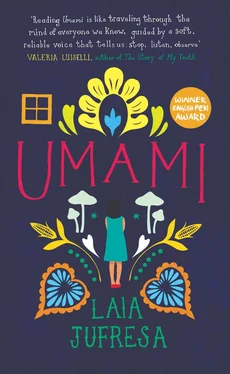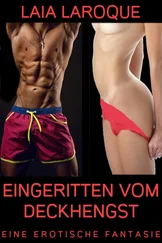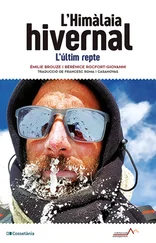They reach the security hut and open the gate. It creaks, but given the racket the camper is making it makes little difference. Pina feels bad for the people sleeping; for the people who have Golfs and Nissans and brothers and sisters. But she’s also pretty happy, because she’s wanted to leave this place since the second they arrived.
‘What happened to you?’ her father asks her.
Pina realizes she’s fiddling with the sore on her hand.
‘I fell,’ she says, ‘and scraped it.’
Beto crouches down, still loaded up with everything, and says, ‘Can you move your wrist?’
‘Yes.’
Pina shows him, moving it slowly and pulling a pained face so he believes her. She walks over to the camper and Beto opens the sliding door. She gets in, and he loads their stuff.
‘Bonjour, mademoiselle,’ Chela says, but Pina doesn’t answer. Her dad doesn’t like it when Chela speaks French because she learned it with a French boyfriend. When Dad isn’t around, her mom tells Pina all about her old flames who always came from far-off places like the princes in fairytales.
It’s weird to see her mom up and dressed and at the wheel so early. She’s wearing a flowery dress and a black cardigan. Normally when Chela takes Pina to school she’s dressed for dance class. She often stays like that all day. One time a boy in her class asked Pina why her mom came to pick her up in pajamas.
‘Leotard and leg warmers,’ Pina had corrected him. ‘Contemporary dance.’
But the boy just gawked at her as if she too were wearing a nighty. And that’s generally how it is at school: nobody knows who Pina Bausch is. Everyone assumes Pina’s name is Asian. Apart from Ana, of course. Ana knows who Pina Bausch is because Pina told her when they were like six, with a VHS cassette which they still play from time to time, even though they’re nine now and they have to take the VHS player out of the closet every time they want to watch it. In the video there’s one piece where Pina Bausch dances around a room full of tables and chairs without ever opening her eyes. Sometimes Pina and Ana still try to walk like that, but they always end up bumping into something or each other. One time they made Luz and Olmo try it in the yard and Olmo split his head open on one of the concrete planters.
The camper drives into and then out of a small, sleepy city. From the window, Pina sees three children walking alone along the side of the road. They’re wearing uniforms and carrying big backpacks. Pina would like to propose they give them a ride — there’s enough space in the camper — but she worries that one of her parents will say yes and the other no, sparking off another row. They take the highway. Beto sings, ‘Little donkey, little donkey, had a heavy day,’ but nobody joins in. His tie is in the food basket, rolled up like a big, smooth snail.
Last night, in the bathroom, Pina picked at her scab and then watched as it changed color under the stream of tap water. It went from the dark red of dry blood to a light, almost pretty pink. It’s only the size of the edge of a nail and it almost doesn’t hurt. But it does hurt a little. Enough to make up for the fact that she only counted ninety-seven swallows.
*
Pina likes roads, but not when they come to an end. It bugs her when someone says, ‘Nearly there.’ She gets antsy and starts to hope they never get there; that they get a flat. Or maybe not a flat, because that would slow them to a stop, and what Pina wants is to keep on moving forever and ever. What she wants is for whoever’s driving to miss the turn and keep on going. Pina likes the going, not the getting there. Right now, for example, they’re just going. No one’s saying ‘nearly there’, because they’ve only just set off, and Pina feels at peace; her heart isn’t racing; nobody is going anywhere without the others. Her mom is at the wheel. She has her hair in a bun and you can see her dancer’s neck, which Pina likes so much. Her dad is looking the other way, out the passenger window. The headlights on the camper illuminate the road ahead.
They used to have a normal car. Pina liked lying underneath the rear windshield on top of the trunk cover. That’s what she remembers most of all about the car: how she’d watch the clouds and trees rush by, and lie under the rain without ever getting wet. She also remembers how her dad didn’t want her to travel like that, but her mom did, and that one day, to prevent them from fighting, she said she didn’t even like traveling under there like that anymore, which was a lie.
Then, one day, while she and her dad were doing her homework in the living room, they heard a loud, persistent honking coming from outside. Eventually, Beto drew back the curtain. Pina watched from the sofa how his faced transfigured, and then how he dissolved into laughter. She ran to the window and there was her mom in the street, doing pirouettes and jetés around a red Volkswagen camper to introduce her new toy. She’d left that morning in the regular car and come back in this carriage, which has been getting them around ever since. Dad’s reaction that day had been contagious. Pina strokes the memory like a cat, and like a cat, the memory purrs, giving off the precise feeling of that afternoon: him and her doubled up in the living room, and her mom outside, dancing on her own, but for them.
*
Chela puts on some music. It’s Tracy Chapman. Pina likes the song ‘Fast Car’ because that’s exactly how the camper goes. Sometimes, if the journey is really long, her dad says, ‘OK, enough, right?’ and changes to his Mozart CD, which has a dinosaur sticker on the case. Pina put it there because it’s old-fogey music.
‘Mozart is just baroque oom-pah-pah,’ Pina once said, and her parents had fallen about laughing. She knew that what she said was funny because she’d heard someone say it during one of Aunt Linda’s rehearsals, and everyone had fallen about laughing then too. The truth was, she didn’t know what it meant.
‘Don’t mess with my man Amadeus,’ her dad had said.
Now Pina wants to ask if he remembers, but she can’t be bothered to raise her voice over the roaring camper. Sometimes, even without the roaring, Pina can’t be bothered to speak. She doesn’t like breaking the silence. Like a bubble she can choose when to burst, or like the highway ending, she prefers to put it off. Sometimes it’s not possible, because the air is heavy after a row and it falls to her to come up with something else to add to the air to clean it, even if she doesn’t want to. Sometimes she knows even before she tells a joke that her parents aren’t going to laugh, but she tells it anyway. Because when there’s a dirty silence in the car or at home, it doesn’t matter if the joke is any good or not: her parents just won’t be in the mood. But she has to tell it anyway, like covering a stain with a doily. Just as people on the news go on hunger strikes, her parents go on long laughter strikes. And Pina often goes on talking strikes. She’ll only talk a lot with Ana, and occasionally with her dad, who asks her lots of questions. With her mom she won’t talk so much because whenever she tells her anything it’s as if Chela knew it already.
From her position stretched out on the backseat, Pina turns to face forward. The buckle on her safety belt digs into her but she tells herself to put up with it. She wraps a blanket around her and feels better, but now she doesn’t see the landscape as it whooshes by so the road is pretty dull. She changes position again, now in a grump. Then she raises her feet and presses her toenails to the window. It’s cold. When she takes them away the mark is left on the condensation. It’s like leaving footprints without having to go anywhere. When they disappear, you just put your foot back. When it gets too cold, you put your foot back under the blanket. It’s like her mom, who comes and goes, and then, just when Pina thinks she’s not going to remember her anymore, comes back. She spent a lot of time this weekend thinking about that. Because of the fight, of course, but also because of the floor all around the pool. It was made of clay paving stones. When the soaking-wet kids ran past they left their footprints there, and then, gradually, the footprints disappeared and it was as if they’d never been there. Pina thinks that the boy who scratched her hand the night before isn’t as bad as the other boys. The other boys from Planet Earth.
Читать дальше












